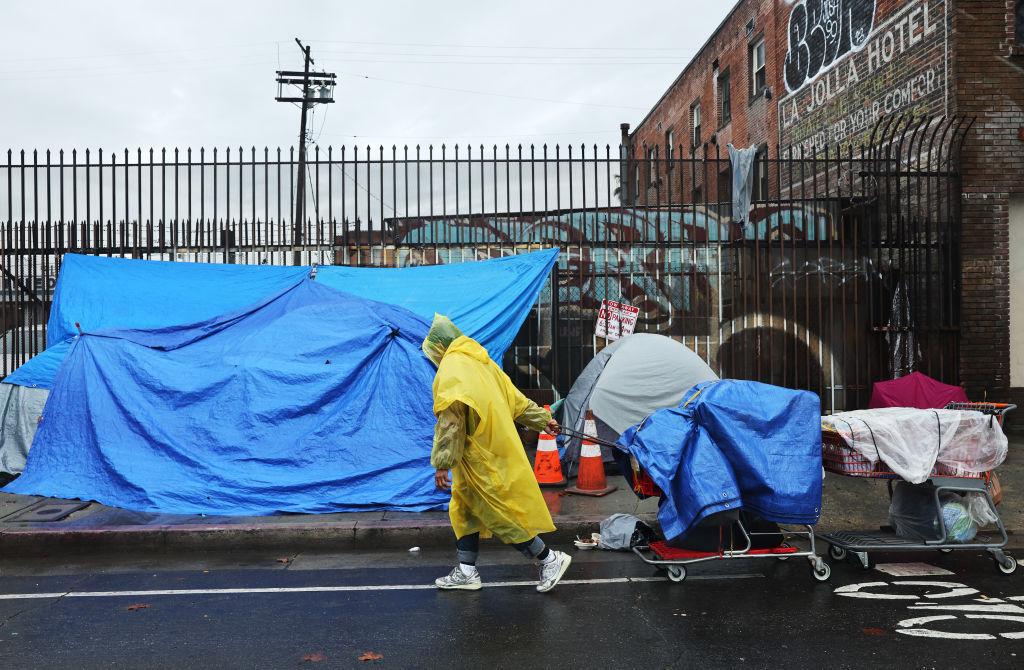11 Alarming Reasons Why California’s Wealthy Are Fleeing the State
The fifth largest economy in the world is facing some major issues. California has become a state to flee as the wealthy move to other states.
This mass migration is not a story of personal preference, but one of California’s shortcomings reaching a critical point for the wealthy. Let’s look at the 11 biggest reasons why wealthy Californians are leaving.
High-Income Tax
Drawn by the allure of lower income tax rates, the wealthy are fleeing California because of the state’s tax on the rich.

Source: Blogging Guide/Unsplash
This high tax burden encourages high earners to look at other states where they can claim their income. Most states have a lower tax rate than California, and some have no state income tax at all.
High Cost of Living
While income tax has been a burden for many wealthy Californians, the cost of living is outrageously high compared to the remaining 49 states in the US. Major cities like San Francisco and Los Angeles have the highest cost of living in the country.

Source: Diego V/Flickr
For wealthy individuals, the financial advantages of living in more economically favorable states where the cost of living is significantly lower are a no-brainer.
Unfriendly Business Practices
Despite Silicon Valley still being the home of the biggest technology companies in the world, California’s regulatory environment has shifted and has become increasingly unfriendly to businesses.

Source: Freepik
High operational costs, tight regulations, and complex legal environments have made it harder for businesses to invest in or get off the ground. Consequently, many wealthy individuals are starting or moving their businesses elsewhere.
High Population Density
One reason California ranks as the fifth-largest economy globally is its status as one of the most populous states in the US. However, this high population density, particularly in urban areas, comes at a cost.

Source: Buda Mendes/Getty Images
Congested highways and neighborhoods, long commutes, and the high cost of services and goods have motivated many to migrate out of California in search of quieter locales.
Increasing Natural Disasters
California has been the target of many recent natural disasters, from wildfires to earthquakes, droughts, and atmospheric rainstorms, leaving the state in a constant climate crisis.

Source: Todd Diemer/Unsplash
The increasing frequency and intensity of these events have pushed the wealthy toward places with fewer environmental risks.
Hindering Estate Planning
Estate planning and inheritance for wealthy families is very important, but California is attempting to take that money and put it back into their communities. While the state does not impose its estate tax, high federal estate tax rates and the state’s stringent probate process can be scary.

Source: Kae Ng/Unsplash
To eliminate one of those daunting factors, the wealthy are moving to states where inheritance tax laws preserve their legacy and wealth for future generations.
Polarizing Politics
California has a reputation for being one of the most progressive states in the US, but its views and policies are often very polarizing in the interest of the wealthy.

Source: Wikimedia
The state’s political environment can influence tax policies, business regulations, and social issues. For wealthy individuals, these regulations and policies may not align with their values and economic interests, making them feel that there is better representation somewhere else.
Lack of Public Services
Despite the high taxes, California’s public services–like education, healthcare, and infrastructure–are major points of concern for wealthy individuals.

Source: Mario Tama/Getty Images
These folks are looking for the best place for their families to live that offers a return on their investment. Unfortunately, California doesn’t seem to be that place.
Slim Economic Offerings
Diversifying assets and investments is crucial for wealth preservation and growth. However, California’s offerings are slim.

Source: Karolina Grabowska/Pexels
Other states may offer more attractive investment options in real estate, businesses, and other ventures that are not readily available or as saturated in California.
Decline In Lifestyle and Recreational Opportunities
Lifestyle choices and recreational opportunities have been a major pull for those looking to stay in California. However, the increase in the cost of living has made these choices extremely difficult or limited.

Source: Anne Drotleff/Unsplash
Now, other states’ offerings are looking more attractive to wealthy individuals. Plus, a lower cost of living means these individuals can leave the country and experience nicer beaches in different parts of the world.
Community Engagement Opportunities
Some wealthy individuals are looking to invest in their communities to engage in philanthropy in ways that feel impactful.

Source: Julian Myles/Unsplash
However, doing this in California feels less impactful. Other states often benefit right away from large donations or programs that directly impact local communities.
